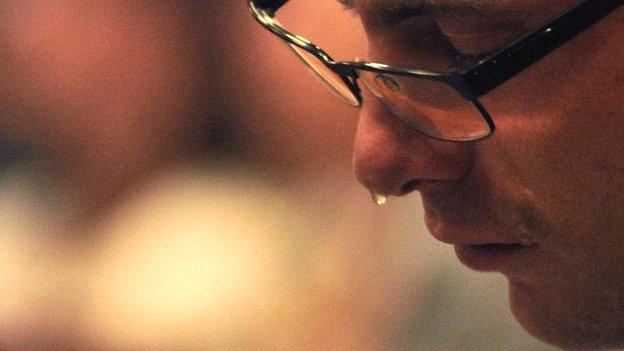Oscar Pistorius parole: Victim Reeva Steenkamp's mother against release
- Published
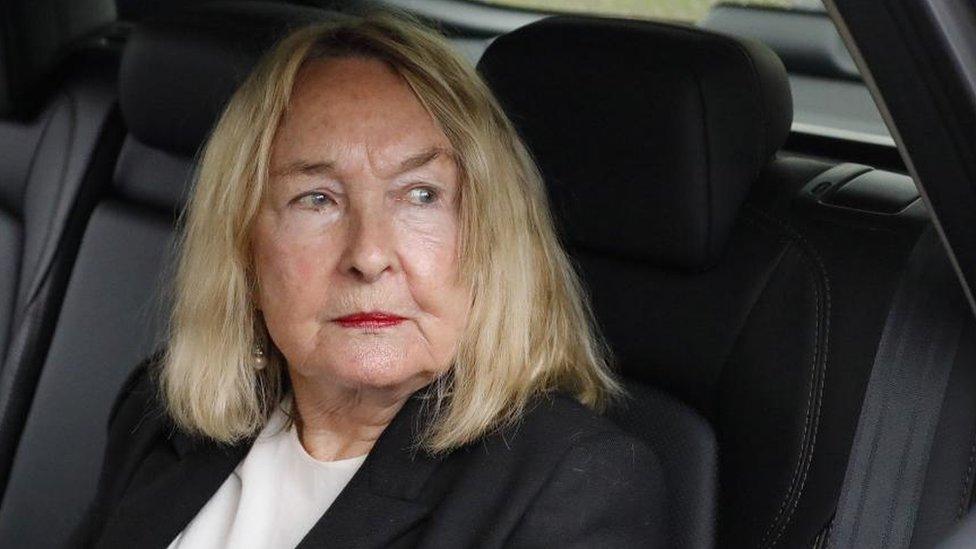
June Steenkamp, arriving at the prison, said she did not believe Oscar Pistorius had been rehabilitated
The mother of Reeva Steenkamp, the woman who was murdered by Oscar Pistorius, says she does not feel the former Paralympics star is remorseful.
June Steenkamp spoke as she arrived for a parole board hearing that is considering whether he be freed early.
He has so far served half of his 13-year sentence for murdering his girlfriend a decade ago.
If he is granted parole, Pistorius, now aged 36, could be released from jail within a matter of days.
The six-time Paralympic gold medallist has expressed his deep remorse for killing his girlfriend on Valentine's Day in 2013, but continues to maintain he shot her by mistake, believing she was a robber.
"I don't believe his story. I don't believe Oscar is remorseful… or rehabilitated," Mrs Steenkamp said on Friday morning.
She had said that it would be hard to see her daughter's killer again, but in the end he was not in the room when she appeared before the board. Pistorius will appear separately.
The hearing is taking place at Atteridgeville prison, a low-security facility in rolling fields just outside the city of Pretoria.
The former amputee sprinter recently met Barry Steenkamp, Reeva's father, as part of a mandatory process known as "victim-offender dialogue".
But the Steenkamps' lawyer, Tania Koen, said the couple still felt Pistorius had intended to kill their daughter - and her death was a life sentence for them.
"For them, it's 10 missed birthdays, it's 10 Mother's Days, Father's Days, Christmases - so time hasn't healed for them," she told reporters at the prison.
"They don't feel that he should be released," she said, adding that they expected a decision to be taken later on Friday.
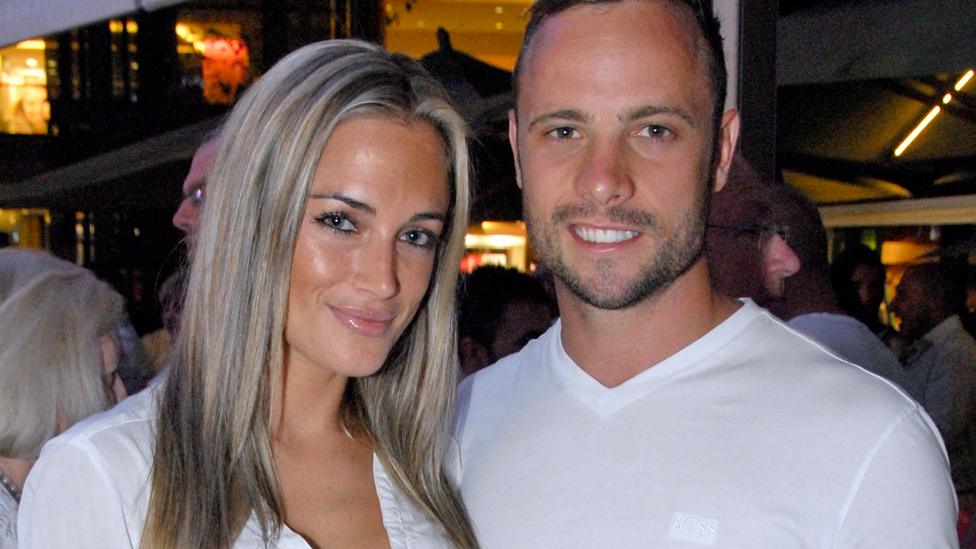
Oscar Pistorius shot his girlfriend Reeva Steenkamp at their home in Pretoria on Valentine's Day 10 years ago
Pistorius was initially found guilty of culpable homicide, but on appeal by the prosecutor he was convicted of murder, on the grounds that he must have known his actions - shooting three times through a locked bathroom door in his Pretoria home - would lead to the death of whoever was on the other side.
"I think he's probably got an arguable case [for parole]," said Mannie Witz, a defence attorney, who also noted that the Steenkamps could challenge a decision to grant Pistorius parole in court, potentially delaying his release for many months.
The televised trial of the man once dubbed "the Blade Runner", because of the ground-breaking prosthetic legs he wore in both Paralympic and Olympic track races, attracted huge global attention.
South Africa's prosecution team sought to prove Pistorius was an angry, violent man, with an unhealthy obsession with guns, who killed his 30-year-old girlfriend in a late-night rage.
"I still think he just went berserk and shot her. I don't personally believe the story of him thinking there was an intruder," said Mark West, a photographer who worked with Ms Steenkamp during her early modelling career.
The parole board - a minimum of three people - will consider statements from Pistorius, the Steenkamps, and from a range of social workers and prison officials. They will look at his behaviour, his state of mind and the extent to which he has been rehabilitated.
If Pistorius fails to get parole at his first attempt or his release is challenged by the Steenkamps, he could still go to court to argue that having served more than half the sentence, South African law stipulates that he should be released under supervision.
This would be most likely at his uncle's home in Pretoria, pending the result of any review or appeal.
Related topics
- Published3 November 2015
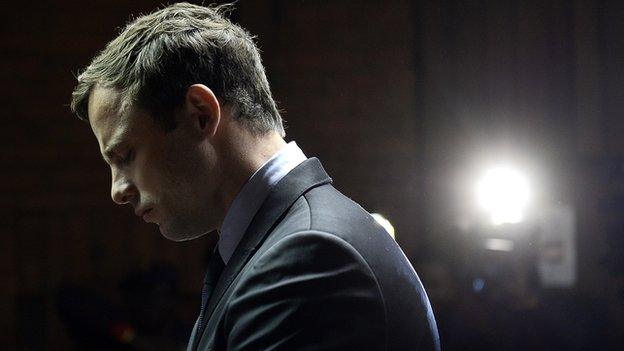
- Published10 September 2014
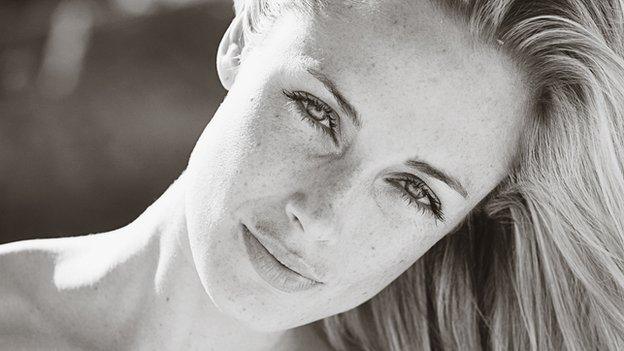
- Published3 December 2015
